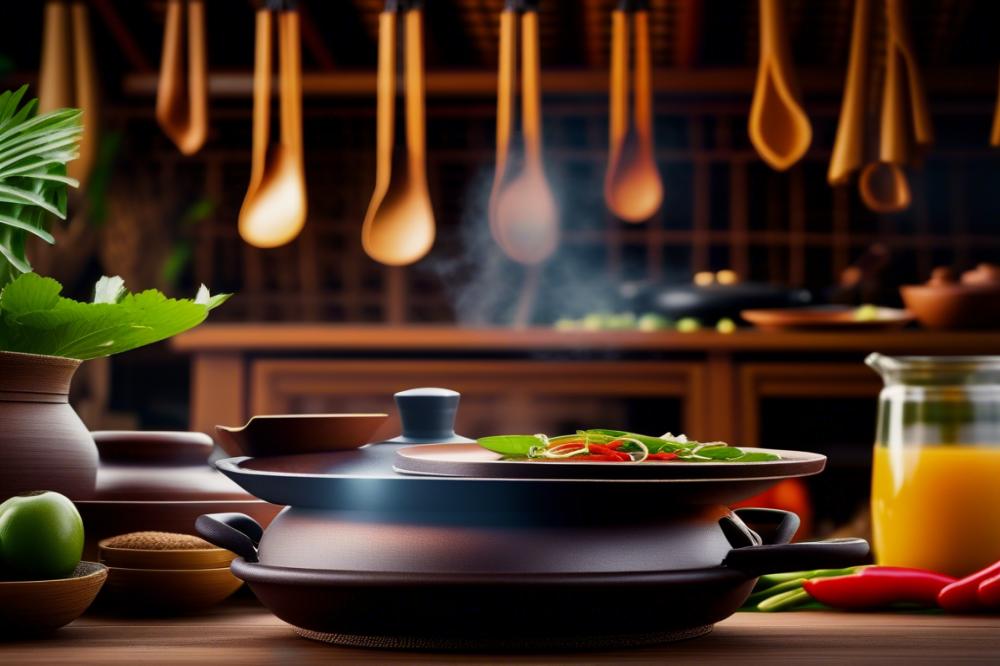Exploring the Joys of Thai cooking
Travelers flock to Thailand not just for its stunning landscapes and vibrant culture, but also for the chance to dive into the world of food. Learning to cook is a key part of many adventure holidays, especially in Chiang Mai. This city stands out as a popular destination for culinary experiences. Here, people can explore the depths of Thai cuisine in an engaging and hands-on way.
Participating in cooking classes allows visitors to gather skills and knowledge about traditional dishes. Students often learn how to use local ingredients. These natural components form the heart of countless Thai recipes. Fresh herbs, aromatic spices, and seasonal produce play essential roles in this delightful food culture.
Charming food market tours accompany many culinary programs. Such excursions enhance the learning experience by introducing students to the local community and its flavors. Strolling through a bustling market offers a sensory journey filled with sights and smells that define the essence of Northern Thai cooking. Furthermore, these experiences provide insights into the unique cooking techniques that have been passed down through generations.
The rich flavors, vibrant colors, and aromatic scents of Thai food entice countless enthusiasts. Courses at a Northern Thai culinary school come with opportunities to master beloved traditional dishes. By the end of their training, participants walk away with new skills and a deeper appreciation for this incredible cuisine. Consequently, they bring a piece of Thailand back home, enrichening their lives and those of their friends and family.
Thai Cooking: A Culinary Journey
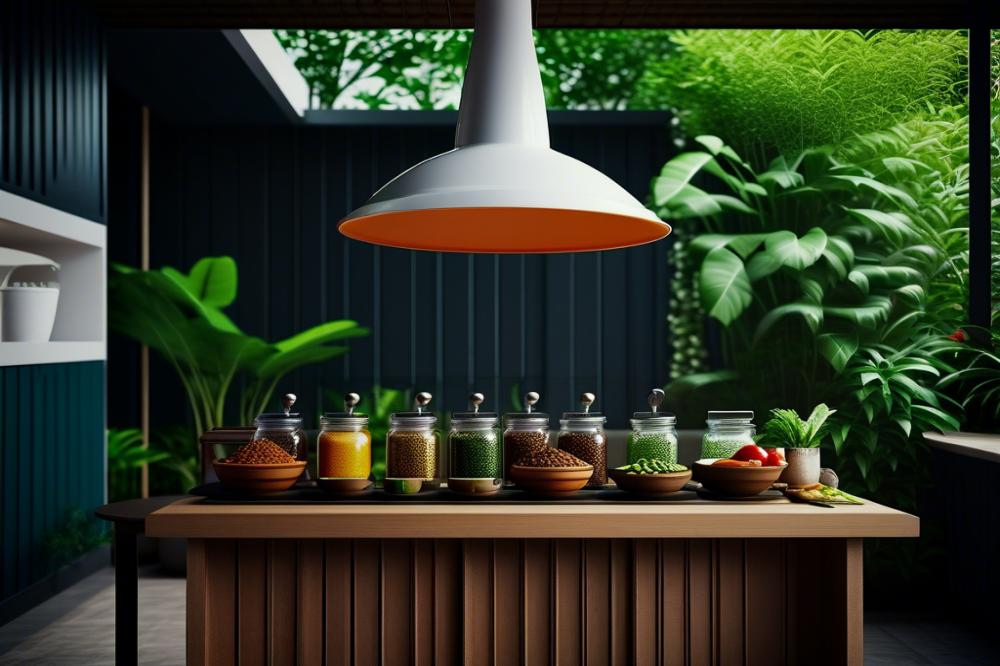
Thai cooking is more than preparing meals; it represents a rich tradition deeply embedded in Thai food culture. It brings together various influences, flavors, and techniques that reflect Thailand’s diverse history. Each dish tells a story of regional customs, local ingredients, and culinary practices passed down through generations.
The diversity found in Thai cuisine is quite remarkable. It showcases a blend of flavors such as sweet, sour, salty, and spicy. Whether it is the bold dishes of the north or the seafood-centered plates of the south, each region offers something distinct. This variety offers an opportunity to explore different culinary styles and ingredients, broadening one’s appreciation for the flavors of the country.
Learning authentic cooking techniques is essential for anyone interested in mastering Thai recipes. cooking classes, especially those in places like Chiang Mai, provide hands-on experiences. These classes often begin with food market tours, where students can select fresh herbs and vegetables. Understanding how to source local ingredients enhances the quality and authenticity of the dishes prepared.
Traditional Thai dishes such as Pad Thai or Tom Yum are not just meals; they are crafted from a deep understanding of balance in flavors. The skills gained from cooking classes allow participants to recreate these meals at home. Familiarity with cooking methods such as stir-frying or steaming can be vital to replicating authentic taste.
The culinary experience is transformative and rewarding. Students often find themselves immersed in Thai culture during their cooking journey. Cooking alongside locals provides insights into their lifestyle and traditions. What starts as a class transforms into an exploration of identity through food. This makes learning Thai cooking truly invaluable.
Discovering Northern Thai culinary schools
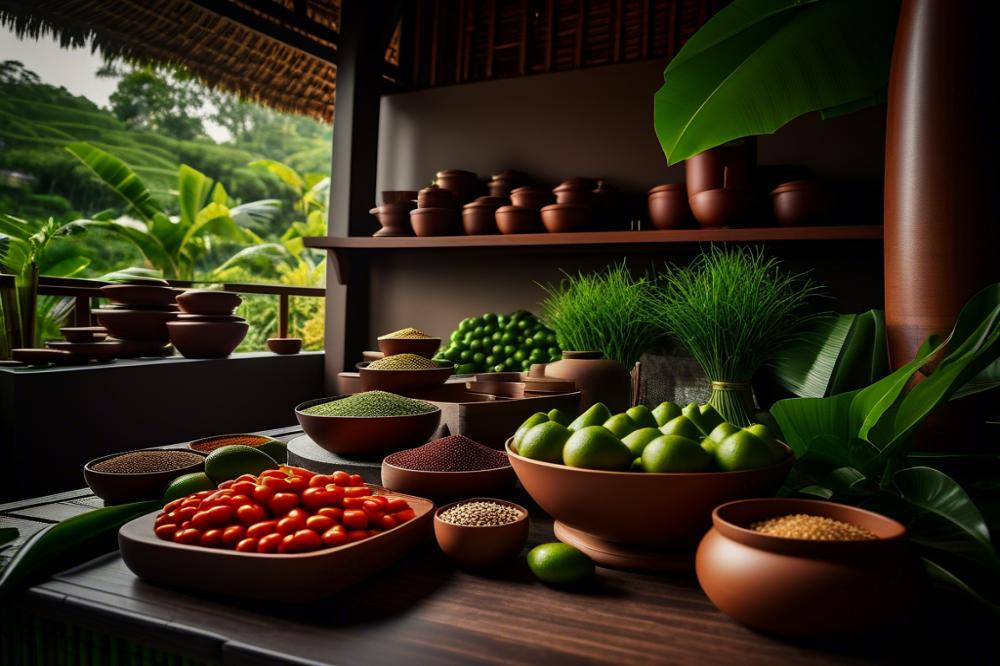
Chiang Mai is known for its rich food culture and vibrant cooking scene. Many culinary schools in this city provide excellent cooking classes. Each school has its own charm and distinct offerings that attract both tourists and locals. Students can immerse themselves in Thai cuisine while learning from experienced chefs.
One popular option is the Baan Thai Cookery School. This school stands out for its comprehensive approach. They offer half-day and full-day classes where participants prepare traditional Thai dishes. Instructors emphasize the importance of using local ingredients.
Another noteworthy establishment is the Chiang Mai Culinary School. This school focuses on teaching authentic cooking techniques. Classes often include hands-on practice. Students also get to explore local food markets, where they learn to select fresh produce and other essentials for their recipes.
At the Thai Farm Cooking School, the experience is even more immersive. Here, learners not only cook but also have the chance to plant and cultivate their own herbs and vegetables. The natural surroundings enhance the culinary experience. Making meals from farm to table connects participants with the essence of Thai food culture.
The A Lot of Thai Cooking School offers a friendly atmosphere. They place a strong emphasis on sharing stories behind each dish. Classes cover a variety of recipes, helping students understand the history and significance of each meal. This depth of knowledge makes the classes memorable.
Many schools also include excursions to local markets as part of their curriculum. During these tours, learners can see firsthand where ingredients originate. This aspect adds a valuable dimension to the cooking classes. Being able to choose the best products makes a real impact on the final dishes.
Each culinary school in Chiang Mai has something special to offer. Whether it’s a focus on sustainability, market tours, or storytelling, students find inspiration. Learning about cooking techniques is not just about making food; it’s an engaging journey into Thailand’s culinary heart.
Hands-On Cooking Classes
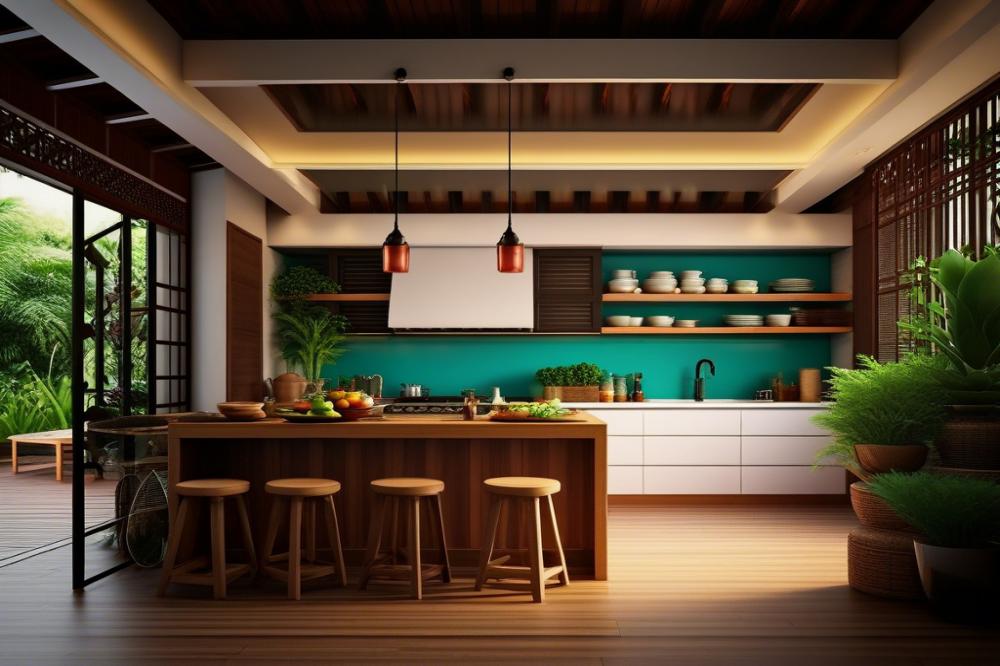
Students can expect a vibrant atmosphere during hands-on cooking classes. Immersed in the rich culture of Chiang Mai, participants learn to prepare traditional Thai dishes. Each lesson focuses on using fresh, local ingredients sourced from nearby markets. Instructors emphasize practical cooking techniques, guiding each student through the process.
Food market tours are an integral part of the experience. Participants visit bustling markets to discover various fruits, vegetables, herbs, and spices essential for creating authentic Thai recipes. This journey enhances their understanding of Thai food culture. It also prepares them for the actual cooking sessions that follow.
During the classes, students delve into the preparation of numerous dishes. They chop fresh herbs, simmer fragrant curries, and create delicious stir-fries. Support from instructors fosters a comfortable learning environment. Each student receives personalized guidance based on their skill levels. This helps everyone feel confident as they explore new cooking techniques.
Sharing the fruits of their labor is another memorable aspect of the experience. After preparing their meals, students gather together to enjoy the dishes that they’ve created. Engaging in conversations about the flavors and cooking methods fosters a sense of community. Participants leave with not only new recipes but also lasting memories and friendships.
Overall, hands-on cooking classes provide a full sensory experience. The aromas, textures, and vibrant colors of Thai cuisine engage learners at every level. With a focus on traditional practices and local ingredients, students gain a deep appreciation for the art of cooking.
Food Market Tours: A Blend of Culture and Ingredients
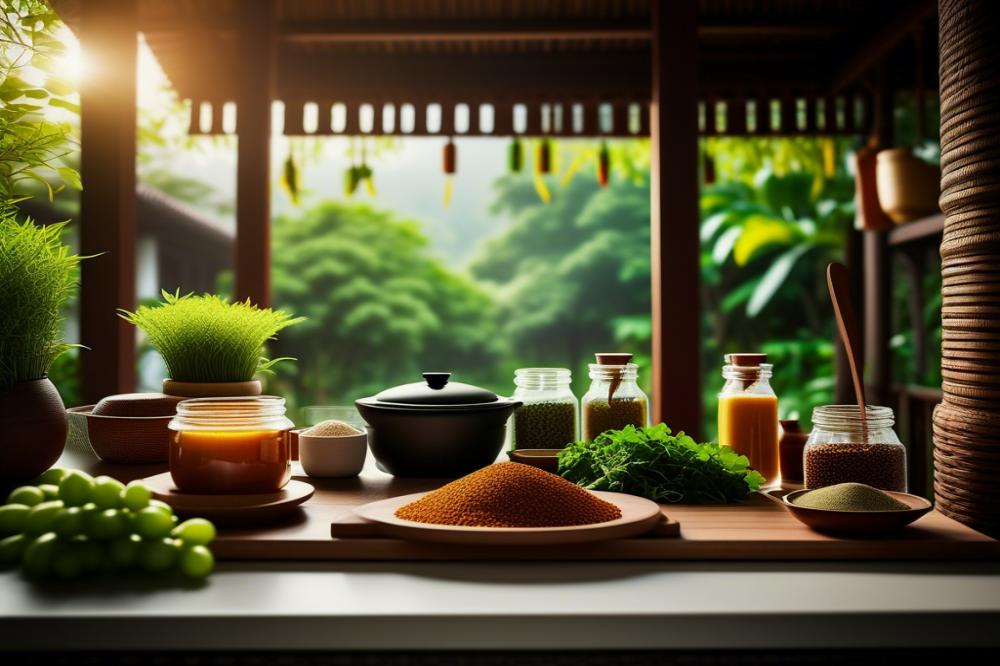
Food market tours are an essential part of many cooking classes in Chiang Mai. Participants embark on journeys through vibrant local markets. During these tours, they explore heaps of fresh produce, fragrant herbs, and colorful spices. The experience goes beyond mere shopping. It offers a gateway into the heart of Thai food culture.
In the bustling markets, students gain insight into the significance of local ingredients. Every item on display tells a story. For instance, understanding the role of lemongrass or kaffir lime leaves in traditional Thai dishes reveals layers of flavor. This knowledge enriches the culinary experience during the cooking classes that follow.
Guides often share valuable information about the varieties of fruits and vegetables available. Many of these ingredients are staples in Thai recipes. Participants learn to identify the freshest produce, an important skill for those who want to master cooking techniques. Selecting high-quality ingredients can greatly enhance the taste of any dish.
Market tours also emphasize the connection between food and culture. Participants discover the origins of many traditional Thai dishes. Stories about family recipes and regional specialties create a deeper appreciation for the cuisine. A casual conversation with a vendor might reveal secrets behind a particular dish or ingredient.
Students often find themselves amazed by the diversity of products available. The colors, smells, and sounds of the market provide an immersive experience. Engaging with local sellers fosters a sense of community. These interactions help students feel more connected to their cooking journey.
Overall, food market tours significantly enrich the learning process. By selecting fresh local ingredients, participants prepare for hands-on classes. This combination of exploration and education makes the culinary experience memorable. With each visit to the market, the appreciation for Thai cuisine grows stronger.
From Classroom to Table: Enjoying Created Dishes
Students at a Northern Thai culinary school experience a fulfilling moment when it comes time to taste their creations. After hours of hands-on work, the fruits of their labor are ready to be enjoyed. Each dish reflects not only their newfound skills but also the vibrant flavors and traditions of Thai cuisine.
During the courses, participants learn various cooking techniques required to prepare traditional Thai dishes. Knowledge gained in the classroom comes to life as students plate their meals. A sense of pride fills the air, especially when they serve their carefully crafted dishes to classmates.
Food market tours emphasize the importance of using local ingredients. Students visit vibrant markets filled with fresh produce and aromatic herbs. These excursions enhance their understanding of how these ingredients contribute to the flavor profiles of the dishes they learn to create.
Tasting is a unique experience that connects students more deeply with Thai food culture. While sampling each dish, they recognize the balance of flavors, textures, and presentation. This not only enhances their culinary experience but also fosters respect for the rich heritage behind each recipe.
Discussions about the dishes often follow tasting sessions. Students share their thoughts on flavors and presentation techniques. Constructive feedback allows everyone to learn from one another. This process builds a community of aspiring chefs eager to grow and refine their skills.
As the classes progress, students begin to experiment with their own variations of the Thai recipes they have learned. This creativity leads to delightful surprises. Known flavors can find new expressions through individual twists, making each meal a reflection of personal style.
By the end of a typical class, a feast spreads across the table. The sight of colorful dishes—stir-fries, curries, and salads—invites everyone to gather and enjoy. Sharing a meal amplifies the experience, turning mere recipes into cherished memories among friends.
This journey from the classroom to the dining table demonstrates the transformative nature of cooking. Each bite opens a window into the heart of Thai culture, reinforcing the connections among food, tradition, and community. The culinary adventure ignites a passion that goes beyond mere food preparation; it nurtures a lifelong appreciation for Thai cuisine.
Final Thoughts
Experiencing the food of Northern Thailand is a journey worth taking. Learning to cook at a culinary school allows individuals to connect with the culture deeply. Participants have the chance to explore the origins of flavors and the significance behind each ingredient. Cooking classes provide hands-on learning, making it easier to grasp techniques and local secrets.
Travelers often seek more than just sights; they want memories that last. This culinary adventure offers a unique way to achieve that. Immersing oneself in Thai cuisine opens the door to the country’s rich history and traditions. Engaging with local chefs and fellow food enthusiasts adds another layer to the experience.
Every dish tells a story, and students become part of that narrative. The satisfaction gained from creating a beautiful meal is rewarding. This journey through flavors and aromas can be life-changing. adventure holidays in Thailand become much more meaningful with the addition of culinary exploration. It’s not just about cooking; it’s about understanding and appreciating a vibrant culture.
Consider this experience when planning your next trip. A culinary school in Northern Thailand is not just about food; it’s a window into a way of life. Embrace the opportunity to learn and enjoy every moment spent in the heart of Thai cooking.

